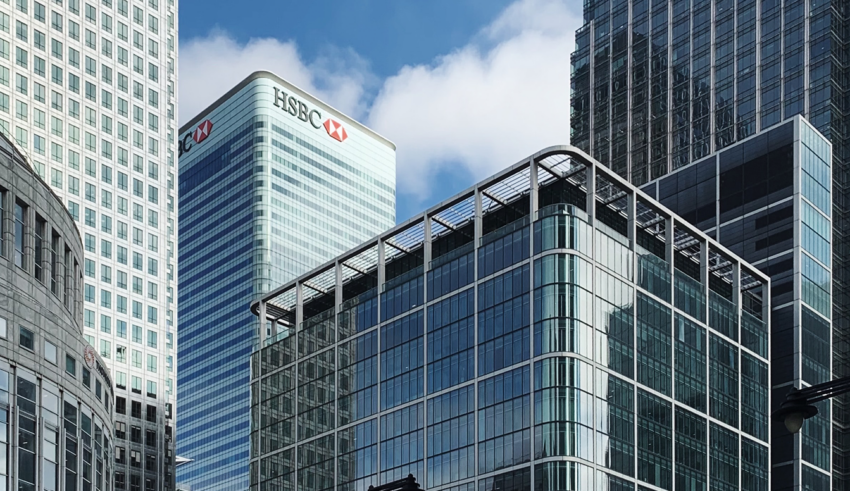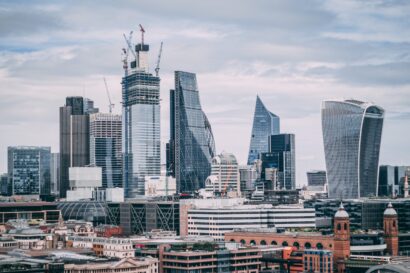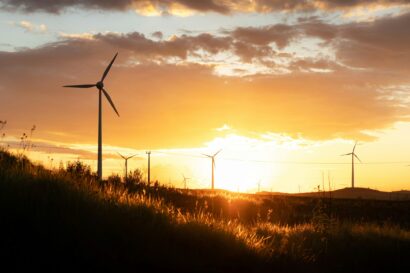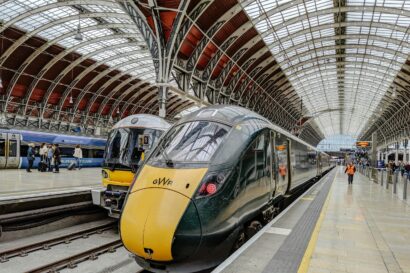AG INSIGHT | 27/10/2025
The new mood music for business action on climate

In this blog, Jack Kunkle surveys how senior executives view the old and new challenges of decarbonisation and greening their supply chains.
In September, the Aldersgate Group hosted a breakfast event for senior business executives to hear about the latest climate science, political insight and policy development from leading sustainability figures, and to discuss how their companies are responding. All those in attendance had set ambitious net zero targets, invested in clean technologies, and had clear plans to bind decarbonisation with growth over the coming decade. Yet, despite their efforts, they were facing continued barriers to going further and faster, and could see dark clouds forming on the distant horizon.
Scan the news and it is clear to see that the mood music has changed on climate, nature and sustainability around the world. Almost a decade since the Paris Agreement and longer still since the UK’s world-leading Climate Change Act, the cross-party consensus on climate has broken down, making business leadership even more critical. It’s clear that we have entered a new era in the sustainability transition: the easy wins have been made, but deeper transformation remains elusive. As new pressures emerge and old challenges persist, the question is no longer whether businesses are committed to sustainability, but how sustainability innovation can create more resilient supply chains and a competitive edge.
Persistent challenges
Many of the issues raised during the discussion were the same as, or at least rhythmed with, those over the last decade. One familiar theme was that of bottlenecks created by infrastructure and supply chains. On infrastructure, the government’s mammoth Planning & Infrastructure Bill making its way through Parliament, with specific measures to speed up planning approvals for renewable energy projects, aims to address these long-term issues, albeit potentially at the expense of some protections for nature. On supply chains, existing challenges around competition and procurement for green tech continue as the world weens itself off fossil fuels. Nuances in the supply chain challenge were also highlighted, namely that large businesses feel confident in their immediate decarbonisation pathway but anticipate issues when SMEs in their supply chains fail to decarbonise at the same speed.
Next, there are the ‘gap’ challenges: the gap in knowledge between how the climate is breaking down and the systemic risk to business, and the gap in financial returns between decarbonisation investments and their returns, often years or even decades later. The gap in knowledge is shrinking over time, thanks in part to the work of the Climate Change Committee and to businesses analysing their supply and value chains. The gap in financial returns, however, is systemic. While businesses can be confident that their climate-friendly investments will bring them healthy returns eventually, they must weigh these investments with other priorities that may bring more immediate returns. Those climate-friendly investments become a harder sell when a business’s balance sheet is tight, and small returns tomorrow are preferable to big returns in a decade.
These challenges are not new. They persist because they are incredibly complicated and often entail fighting an economic system that rewards short-term gains over longterm resilience. Progress on sustainability requires shifting those incentives, embedding environmental performance into financial decision-making, and aligning corporate strategies with long-term national and global climate goals.
New pressures
While old challenges remain, the conversation also highlighted a range of emerging pressures that are reshaping corporate sustainability. The major new challenge, stalking almost every conversation at the event, is the breakdown of the political consensus on climate. We have entered a new era of climate politics in the UK and it is already affecting business. Even now, renewable energy companies are facing higher premiums to insure their projects as they digest the risk of political backlash.
Similarly, there was broad consensus on the need to move beyond the language of ‘net zero’ and top-down climate targets. Alongside growing political opposition to climate investment, ‘net zero’ is losing resonance with the public who are more concerned about pressures in their daily lives, especially the cost of living. Lumping all climate measures under the umbrella of net zero means oppositional groups have a single target to take aim at, and pro-climate groups lose the nuance for how climate measures can improve the daily lives of the public through lower energy costs or greater access to nature. Another major challenge businesses are facing is a skills shortage. Since the breakfast, the government has announced plans to train and recruit more workers for the UK’s renewable energy sector, aiming to create 400,000 jobs by 2030. But it can take years to train people as plumbers, electricians or welders, and these skills are already urgently needed, so short-term shortages are unlikely to improve.
What can businesses do?
As one era of the transition ends, another begins. The previous era has ushered in new economic realities where the sustainable choice for business is often the most economic too – a huge advantage for this next era, despite the loss of political consensus. However, political consensus is not public consensus. The UK public remains overwhelmingly committed to action on the climate and nature crises, and even if some support is lost at the margins the UK public will remain among the most supportive of sustainability initiatives globally.
British businesses have long been world renowned for their innovative advertising, branding and communication. Think of your favourite advert from the last 50 years and consider how it changed your buying habits. I personally blame Cadbury’s drumming gorilla for my various tooth fillings, despite my dentist’s scepticism. The challenge is to sell the benefits of the transition itself – not as a moral duty, but as a vision of prosperity that resonates with everyday experience: lower energy bills, warmer homes, restorative countryside walks, and more resilient supplies of cocoa. If advertising can inspire people to buy products they do not ‘yet’ need, it can also inspire them to believe in a future that benefits them.
Insight
Just as each vote matters in an election, so too does each business in the economy. When businesses work together across supply chains and sectors, their policies can create a network effect and accelerate both decarbonisation and nature restoration far faster than through isolated efforts. The Aldersgate Group exists precisely to facilitate that network effect.
The best time to act was yesterday; the second best is today. Unlike past industrial revolutions, this one comes with a clear destination: a net zero economy sustained by thriving natural ecosystems. That clarity offers an enormous advantage. Businesses know the direction of travel, and those that invest early in clean technologies, resilient supply chains, and nature-positive solutions will be best positioned to lead.



